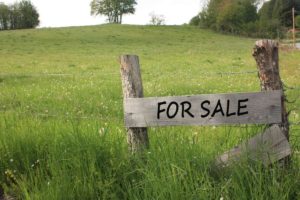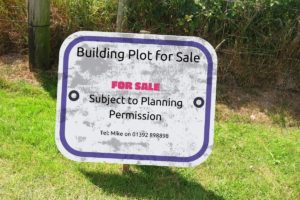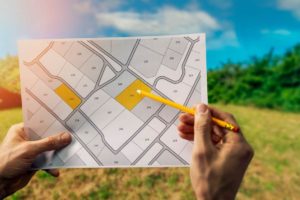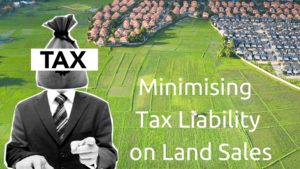How to sell land and get planning permission
Are you finding the whole planning process complicated and overwhelming? Are you still struggling to find the right people to employ to get the maximum value for your land? Do you want to apply for planning permission on your garden plot or excess land?

Help is at hand. Let’s go through this together to make you better informed.
There are 3 main ways to sell a piece of land, including selling with full planning permission.
How to sell your land

-
Selling without planning permission
The quickest way to sell is without planning permission, but it will probably not maximise your return. Garden land is only worth what a buyer is prepared to pay. To clarify, without planning permission, it can only be sold for the same use – to be used as a garden. Then again, if you have a field, this can only be valued at agricultural land prices.
Therefore, any buyer willing to pay you a decent amount for your land will want to know if they can achieve planning approval and build in the future.
On the positive side, you may feel strongly that your land will easily gain planning approval, but there are still risks involved for the buyer. So the offer you receive will reflect this and not give you maximum value. Many people who believe their land will easily get planning approval are shocked when planning permission is refused. This is because planning permission is very complicated, and even in situations where land is inside a designated development area, there are aspects that can make your planning application be refused because of minor but crucial mistakes.
Having said all of that, selling land without planning permission has some advantages. Selling without permission might be your best option if you need a quick sale because obtaining planning permission can be expensive, time-consuming, and risky.
-
Selling with planning permission.

Undeniably selling land with planning permission offers you more control over how the land is used after it is sold. It will also increase the value of your land as the risk of costly planning applications and possible appeals have been removed for the buyer. It also guarantees that your site can be developed.
Could you go for outline planning permission?
Well, you could. It is a simpler process. Unlike full planning, an application for outline planning permission is a more general request which lacks specifics like design detail, materials etc.
While this can appeal to the buyer, as it offers them greater flexibility regarding what they can build, it may not be your best option. Local Councils often find it problematic to pass with outline planning consent as they don’t know exactly what they are being asked to approve. It also means that any buyer of the site would have to go back for full planning permission before they develop the site. In effect, outline planning offers certainty that the site can be developed but oftentimes little more.
-
Another option – ‘subject to planning’ or option agreements

On the other hand, you could market your land as “for sale subject to planning permission’. Meaning – you agree to sell your land to a buyer who first obtains planning permission before the sale goes through.
This is a popular choice from the seller’s perspective because someone else will be in charge of devoting the time and resources necessary to obtain planning permission. It’s worth pointing out here that this usually comes with a discount off what you would usually expect to receive if you did the whole planning process yourself.
Buyers usually pay more for your land due to an agreement based on getting planning permission. However, you may also find that the average buyer is unwilling to risk paying considerable sums for planning approval on your plot. Buyers are often concerned that you can pull out of the transaction and that they are left paying the bill for your planning approval. Accordingly, an Option Agreement is often the best way to give both parties what they want from the deal.
How do I get Planning Permission?

As we stated earlier, requesting planning permission can be a difficult, expensive, and time-consuming process. This is especially true if you’re selling a sizable parcel of land.
Planning applications require expertise that is often too difficult for the average homeowner to do alone.
Check out the government website on Planning Permissions
The best possible outcome for gaining planning permission after submitting a single-house application is eight weeks. Regrettably, if it is more than ten units, it will take at least 13 weeks to process your application. However, the actual time required to obtain planning permission will typically be much greater than that indicated here. It’s not uncommon for the whole process including the application to take longer than a year as you will need drawings, surveys, etc, to submit with your application.
Once you have planning permission?

Finally, before putting your land up for sale after receiving your planning permission, you will want to value your land.
Check out our blog post on how to value your land. It will give you a general idea of how much you might be able to sell it for. There are several factors that will affect its value.
Need help?
You might like to go it alone, and we wish you the best of luck if you do. If you’d prefer the comfort of knowing you’re in safe hands with professionals you could use The Windley Group. We are experts in all facets of real estate development.
Planning applications are often denied. It’s entirely feasible that this will mean throwing away thousands of pounds with no possibility of getting any of that money back. However, when you partner with The Windley Group, we assume all of the risks and are responsible for paying all of the considerable expenses.
Most importantly, we are dedicated to making your experience as simple and pleasurable as possible. We have a team of professionals that are always working to make each and every site, no matter how big or small, the most successful project possible for everyone.
For more details, contact us at hello@thewindleygroup.co.uk
Or call 01392 982537
Check out our other blog posts to be better informed.




